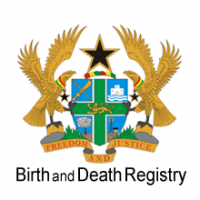28TH JANUARY 2018
OCCUPYGHANA® PRESS STATEMENT
OCCUPYGHANA® CALLS FOR SUPPORT FOR THE AUDITOR-GENERAL TO VERIFY ALL ASSETS & LIABILITIES DECLARED BY PUBLIC OFFICIALS
INTRODUCTION
OccupyGhana® believes that it is within the constitutional remit of the Auditor-General to conduct an audit or verification of all forms submitted to that office by affected public officers, purporting to declare their assets and liabilities. Such audit or verification would be to ascertain whether:
(1) the assets and liabilities were declared in accordance with the law, upon the assumption by the public officer of his office,
(2) the assets declared actually exist, so as to prevent ‘assumptive’ declarations, where the person declares non-existing assets now, based on the assumption that through corruption those assets may be acquired later,
(3) the declarations were submitted within the time provided by the Constitution, and
(4) any new assets were acquired or liabilities discharged while in office, so that an inquiry may be conducted into whether those assets or the means to settle the declared liabilities were acquired genuinely.
Such a verification or audit could cover all assets declared since the coming into force of the Constitution.
We also believe that if the audit/verification reveals contravention or non-compliance or that there are assets that are not properly attributable to the income of the office holder, then the Auditor-General may refer the matter to the Commission for Human Rights and Administrative Justice (CHRAJ) for investigation.
OccupyGhana® has also received and studied the 2017 Conduct of Public Officers Bill. While recognising that the Bill contains some forward-looking provisions on assets declaration, we notice that the Bill stops short of expressly recognising the inherent power of the Auditor-General to verify the declarations that are submitted to her/him, although that recognition is inferred in that Bill.
We nevertheless do not think that the Bill must be passed into law, or that any constitutional or legislative amendments are required, for the Auditor-General and CHRAJ to perform these functions.
We believe that it is time for the said offices to rise up to the constitutional obligations placed on them, and perform these functions that will bring life and meaning to the relevant constitutional provisions in the fight against corruption.
We now turn to a discussion of the relevant constitutional provisions.
‘SECRET’ DECLARATIONS ARE UNCONSTITUTIONAL
Article 286(1) demands that holders of specified public offices “shall submit to the Auditor-General a written declaration of all property or assets owned by, or liabilities owed by him whether directly or indirectly.” The article speaks of a “declaration,” which we understand to mean a formal or explicit statement or announcement.
Currently the declaration is in the nature of a form that is found in Schedule 2 to the Public Office Holders (Declaration of Assets and Disqualification) Act, 1998 (Act 550). Our understanding of the current practice is that the Declaration Form is allegedly completed and submitted to the Auditor-General in a sealed envelope. We also understand that the envelopes remain sealed, and that the successive Auditors-General have not considered it as part of their obligations under the Constitution to open the sealed envelopes, let alone verify or conduct an audit of their contents.
We find nothing in article 286 that supports the current “secret declaration,” which is a contradiction in terms. The concept of a “secret declaration” that remain uninspected in the hands of the Auditor-General is not just alien to the Constitution but an anathema, and is therefore unconstitutional.
We also note that the power of the Auditor-General to verify the declarations submitted is implicit or implied in the language of the Conduct of Public Officers Bill. For instance, clauses 7 and 11 make it an offence to submit a false declaration or clarification, or to fail to submit a declaration or clarification. Clause 8 provides for the Auditor-General seeking clarification on matters such as the ownership of assets declared and explanation or correction of discrepancies or inconsistencies in the declarations. Clearly, these are not possible until the Auditor-General has exercised his power to verify or audit the declarations submitted to her/him.
TIME FOR MAKING DECLARATIONS
Further, article 286 demands that the declarations should be submitted to the Auditor-General by office holders (i) before taking office, (ii) at the end of every four years, and (iii) at the end of a person’s term of office. The Constitution expresses these in mandatory terms and does not permit the making of the declaration and submission on any date after the stated times.
Therefore, it is also unconstitutional to submit any declaration to the Auditor-General after the deadline stated in the article. Any office holder who submits the declaration after the stated deadline has breached the Constitution and the oath of office to “defend the Constitution of the Republic of Ghana as by law established.”
Accordingly, we believe that the provision in section 1(4) of Public Office Holders (Declaration of Assets and Disqualification) Act, 1998 (Act 550), which gives a 6-month extension for the submission of the declaration, is unconstitutional and void. The repeat of this in clause 4(3) of the Conduct of Office Holders Bill would also be unconstitutional if the Bill is passed into law.
NO CONSTITUTIONAL BAR TO VERIFICATION
Article 286(3) then provides that the declaration “shall on demand be produced in evidence” before a court, a commission of inquiry under article 278 and before an investigator appointed by CHRAJ.
Since the inception of the Constitution, this provision has been applied to mean that these are the only circumstances under which the declaration may be made public. We disagree. This provision only states instances where the declaration may be tendered in evidence. It does not say that apart from these circumstances, the declaration is and remains a confidential document that even the Auditor-General can neither audit nor verify. The article surely does not bar the Auditor-General from opening the envelopes submitted to verify if indeed what has been submitted is an assets and liabilities declaration form in the first place, and then to audit the contents, cross-checking with other assets and liabilities declared previously by the same persons.
That is why any application of article 286(3) to make the declaration submitted to the Auditor-General a secret even from the Auditor-General himself/herself also flies in the face of article 286(4), which is couched in general terms and not subject to article 286(3) as follows:
“Any property or assets acquired by a public officer after the initial declaration required by clause (1) of this article and which is not reasonably attributable to income, gift, loan, inheritance or any other reasonable source shall be deemed to have been acquired in contravention of this Constitution.”
Any position that purports to bar the Auditor-General from auditing and verifying the declaration would read article 286(4) as being subject to article 286(3), so that the only circumstances under which it may be discovered that an office holder had acquired assets or settled liabilities in breach of the Constitution, is when the declaration is “produced in evidence” in the course of court proceedings, commission of inquiry proceedings or CHRAJ investigations.
Our respectful view is that it is the Auditor-General’s audit or verification that would reveal whether any new assets have been acquired or liabilities settled. It is that audit that would inform the commencement of any of the article 286(3) proceedings at which the actual declaration submitted to the Auditor-General would be “produced in evidence.”
The current stance therefore flies in the face of the probity, accountability and transparency provisions in the preamble to the Constitution, negates the mandatory obligation placed on the state under article 35(8) “to eradicate corrupt practice,” and claws back the duty placed on citizens to “to protect and preserve public property and expose and combat misuse and waste of public funds and property.”
CONCLUSION
We reiterate that it is not for nothing that the Constitution provides that the assets and liabilities declarations be submitted to the Auditor-General, and no other person. In line with the residual auditing function of that office under the Constitution, we find it hard to believe that the declarations submitted remain unopened and are simply filed away. Without the Auditor-General conducting such audits and verification, the spirit and true intent of article 286 will never be achieved and the current “concealment and archiving” process will be used to defeat the article.
It is on these bases that we have concluded that the only way to give voice and flesh to article 286 is for the Auditor-General to verify and audit declarations that are submitted, or at least a sample of them. That audit will reveal to the office (i) whether a person has truly declared all assets and liabilities upon assumption of office, and (ii) when a person had completed service to the nation, whether that person has acquired any new assets or settled any liabilities so that an inquiry may be had into whether those assets were acquired genuinely.
We call on the Auditor-General to outline a verification procedure which reflects the true and proper interpretation of the Constitution, particularly article 286, in line with the above, and implement it forthwith. Yours in the service of God and Country,
OccupyGhana





Recent Comment